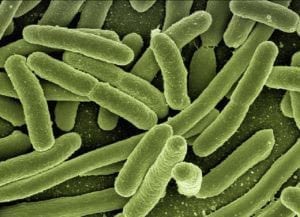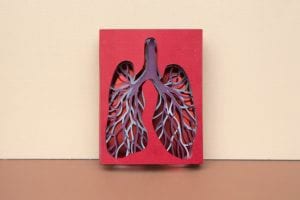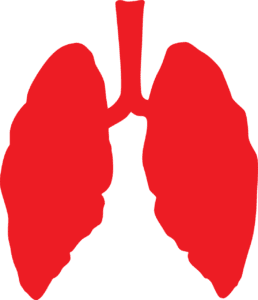Bronchiectasis
What is bronchiectasis?
Bronchiectasis is a condition in which the bronchial tubes of a patient’s lungs are permanently damaged, widened, and thickened, which allows bacteria and mucus to build up and pool in the lungs. There are two main types of bronchiectasis: cystic fibrosis (CF) bronchiectasis and non-CF bronchiectasis. Bronchiectasis can affect just one section of the lungs, or many sections of both lungs, depending on the severity of the condition.What causes bronchiectasis?
Cystic fibrosis causes about one-third of all bronchiectasis cases, and any other lung injury can cause non-CF bronchiectasis. The most common causes include:- Abnormal immune system or autoimmune disorders
- Inflammatory bowel disease
- HIV
- Alpha-1 antitrypsin deficiency
- Allergic fungal lung reactions
What are the symptoms of bronchiectasis?
The symptoms of bronchiectasis can take months or years to develop. The typical symptoms include:- Chronic daily cough
- Coughing up blood or mucus
- Wheezing
- Shortness of breath
- Chest pain
- Weight loss
- Frequent respiratory infections
How is bronchiectasis diagnosed?
If a doctor suspects bronchiectasis, he/she will listen to a patient’s lungs to check for abnormalities or blockages. Blood tests are also used to check for infections or anemia. In addition to these, the following tests can help confirm a diagnosis:- Sputum test
- Chest X-ray
- Pulmonary function tests
What are the available treatments for bronchiectasis?
While bronchiectasis does not currently have a cure, it can be managed so patients can live a relatively normal life. However, flare-ups of the condition must be quickly treated to prevent worsening of the condition and to ensure that oxygen flow is maintained to the rest of the body. To do this, patients must clear up their airways, use antibiotics to prevent and treat infections, and take vaccinations to prevent respiratory infections. In addition, pulmonary rehabilitation, chest physiotherapy, and oxygen therapy may also be helpful.Where can I find more information about bronchiectasis?
Bronchiectasis Articles

Rare Community Profiles: Understanding MAC Lung Disease, Bronchiectasis, and PAH: A Discussion with Dr. Martina Flammer
Jessica Lynn
September 13, 2023
Read More »

Enrollment Complete for Phase 3 Study Evaluating Brensocatib for Non-CF Bronchiectasis
Jessica Lynn
April 12, 2023
Read More »

Study of the Week: Bacteria of the Neisseria Genus Can Worsen Bronchiectasis
James Moore
October 24, 2022
Read More »



Children with Bronchiectasis and Asthma More Likely to Receive Corticosteroids
Jessica Lynn
January 15, 2021
Read More »

Novel Drug for NCFBE Receives Breakthrough Therapy Designation
Sunniva Bean
June 19, 2020
Read More »


